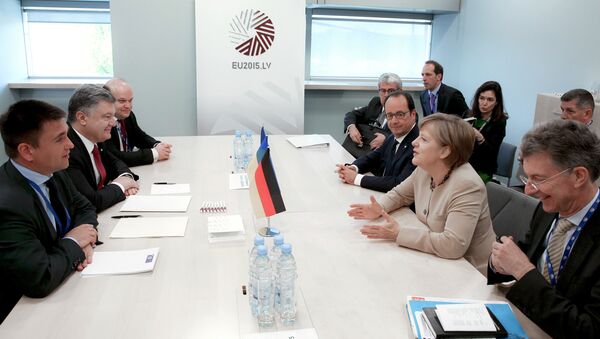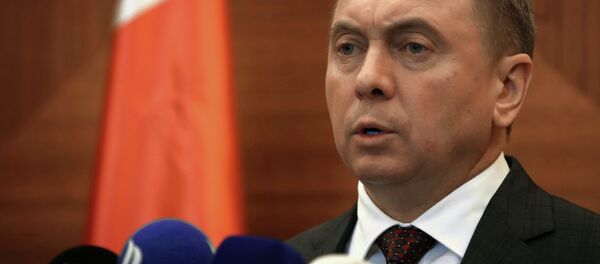The European Union's Eastern Partnership summit with six ex-Soviet states ended with little progress as the partnership countries were divided in their aspirations for European integration and their goals for visa-free travel.
The representatives of Armenia, Azerbaijan and Belarus refused to sign the initial document which stated that the summit condemned Russia's reunification with Crimea, which the document called an "illegal annexation." Ukrainian President Petro Poroshenko, who was waiting for a "signal" from the EU on a visa-free regime, was told by German Chancellor Angela Merkel that the EU is not ready for it.
"We faced growing tensions, a deepening split and an intensifying confrontation in the region and beyond it," Makei said.
Belarusian President Alexander Lukashenko, who faces an EU travel ban, and Azerbaijan's President Ilham Aliyev did not attend the conference.
What do all #EaP have in common? #Armenia #Azerbaijan #Belarus #Georgia #Moldova #Ukraine #RigaSummit pic.twitter.com/HLsIciHV47
— Poland MFA (@PolandMFA) May 22, 2015
The EU welcomed Ukraine and Georgia's efforts to achieve a visa-free regime and Georgia's participation in EU military missions in the Central African Republic and Mali. However, no promises or agreements were made on the achievement of a visa-free regime.
German Chancellor Angela Merkel said on Thursday that the EU Eastern Partnership is an instrument for countries to achieve closer relations with the European Union, but not the union's expansion.



